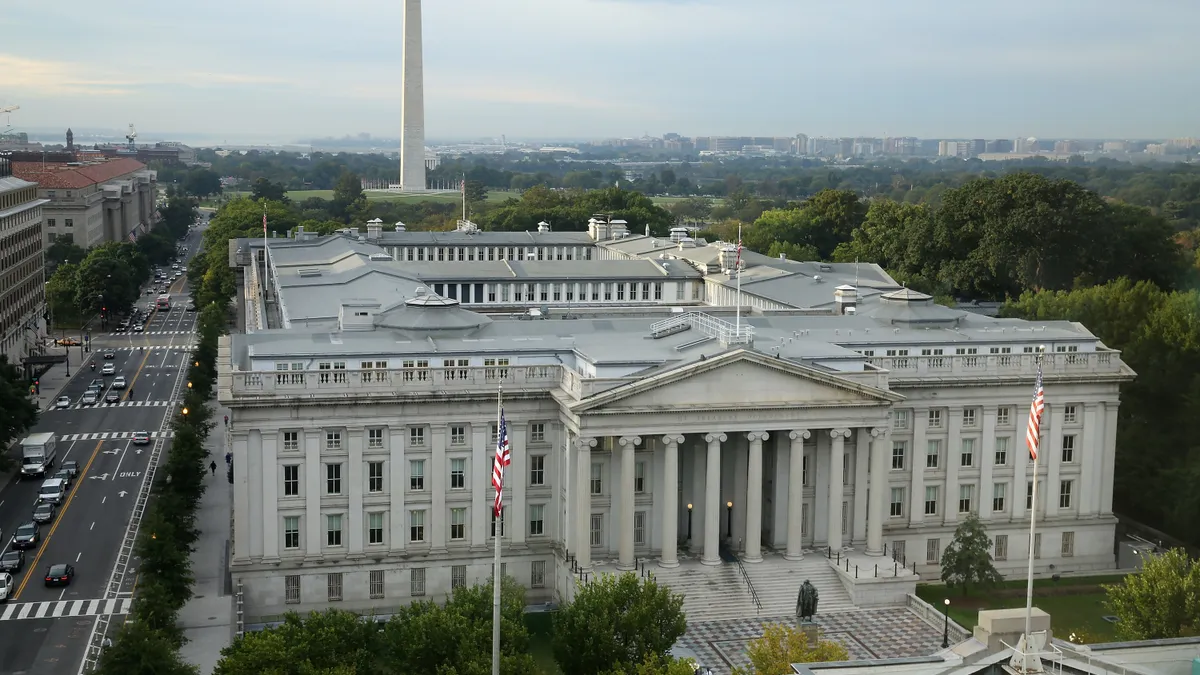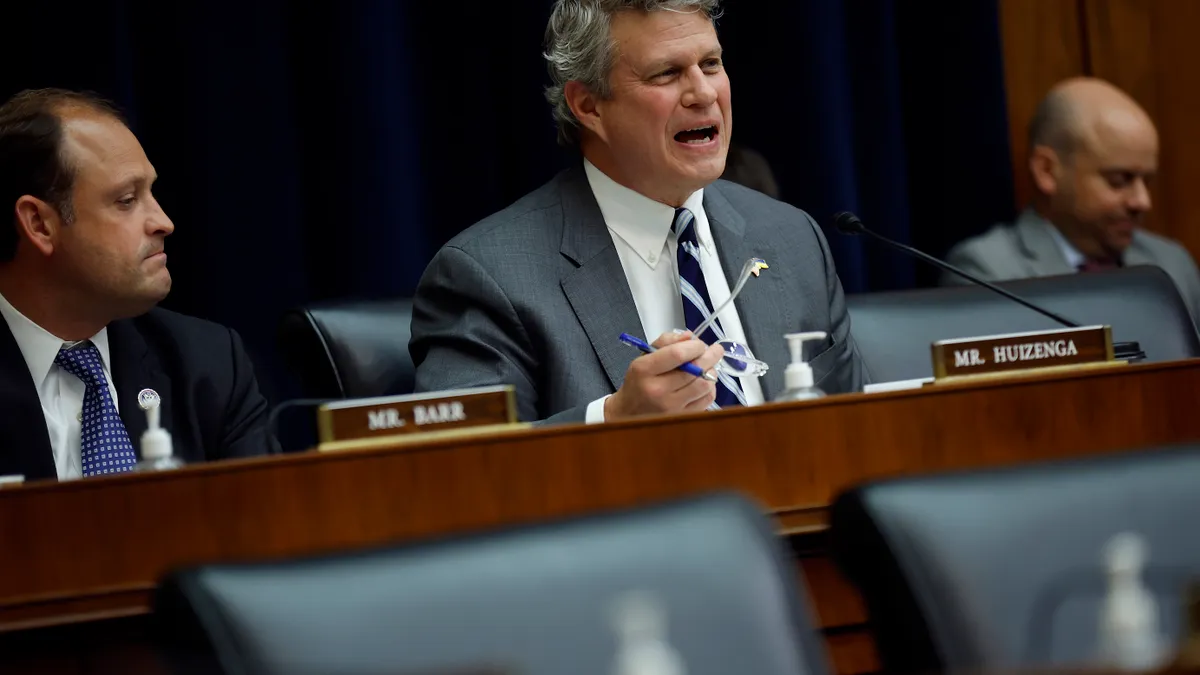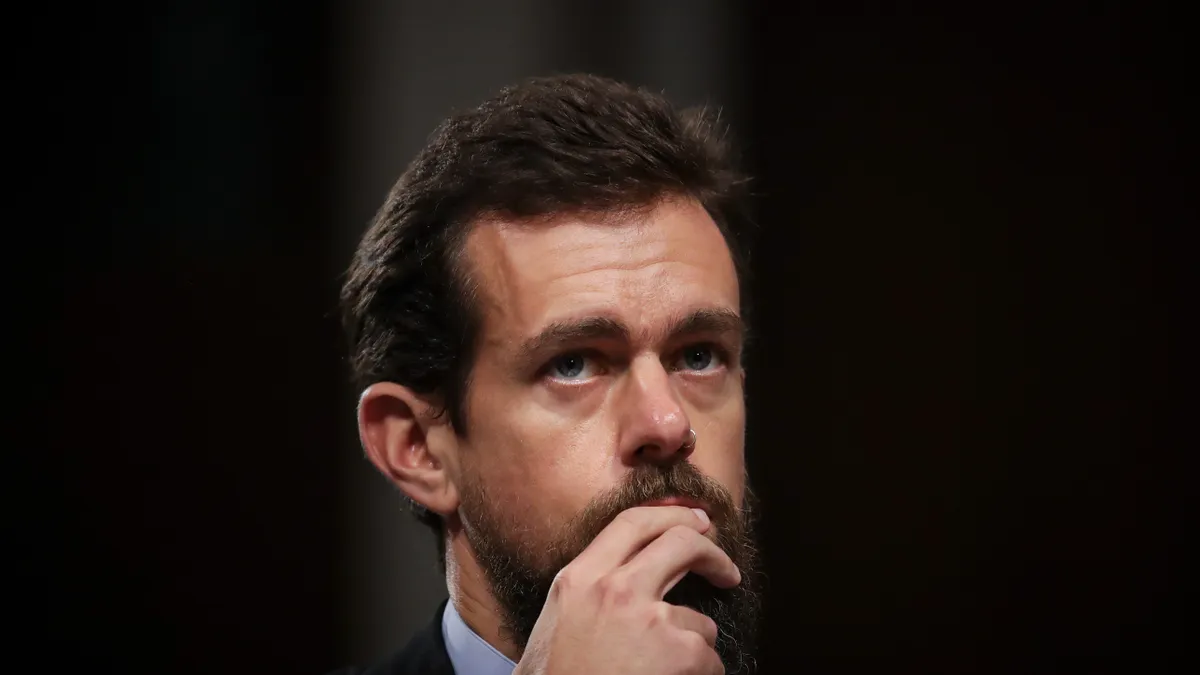A Treasury Department official on Tuesday sought to assuage congressional concerns about Department of Government Efficiency staffers having access to the Bureau of the Fiscal Service payments system.
In response to questions regarding the integrity and security of the system from Sen. Ron Wyden, the ranking Democrat on the Senate Finance Committee, a treasury official sidestepped the senator’s concerns. Wyden’s inquiry last week revolved around staffers being involved in an unspecified mission on behalf of billionaire businessman Elon Musk, who heads the new Department of Government Efficiency.
“Treasury is committed to ensuring that the Fiscal Service is functioning in a manner consistent with the highest levels of efficiency and in accordance with the expectations of taxpayers to prevent waste, fraud and abuse,” Treasury Principal Deputy Assistant Secretary Jonathan Blum wrote in the department’s Tuesday response.
The issue spiraled into public view Wednesday with Republicans and Democrats sparring over the issue at a Senate Banking Committee hearing, according to the Washington media outlet The Hill.
Blum waved off concerns raised in Wyden’s Jan. 31 letter to Treasury Secretary Scott Bessent, saying members of the Musk team had “read-only” access to the payment system that uses coded data, similar to the type of access that auditors might have.
Blum noted the Government Efficiency staffers were being led by Tom Krause, a Treasury official who was formerly “a longtime technology executive” and chief financial officer with “decades of experience in building companies and managing balance sheets.” Krause is CEO of the Cloud Software Group.
“The review at the Fiscal Service has not caused payments for obligations such as Social Security and Medicare to be delayed or re-routed,” Blum wrote. “To be clear, the agency responsible for making the payment always drives the payment process.”
Still, Blum didn’t directly answer many of the questions posed by Wyden, including regarding the reasons for the staffers needing to gain access to the system and any “intended changes” they plan to make; a list of the names of the staffers; information on any background checks and screening of the individuals; and any “operational security steps” taken to safeguard the system.
Blum suggested the work by Department of Government Efficiency staffers was a continuation of a review also underway during the Biden administration “to maximize payment integrity for agencies and the public,” Blum wrote.
“Treasury will continue its efforts to promote efficiency and effectiveness in its operations, and to prevent waste, fraud, and abuse,” Blum said in ending the letter.
Wyden had raised concerns not only about “meddling” by “a cadre of other unknown DOGE personnel” who might not have proper clearances and could be interfering with private and classified information. He underscored that the payments system delivers $6 trillion in annual payments, delivering Social Security checks to Americans and paychecks to troops and providing tax refunds to citizens and payments to government vendors.
The team of Department of Government Efficiency workers with access to the system includes a pack of 20-somethings with some IT experience and little, if any, government work on their short resumés, the media outlets Daily Beast and Wired reported.
“To put it bluntly, these payment systems simply cannot fail, and any politically-motivated meddling in them risks severe damage to our country and the economy,” Wyden said in his Jan. 31 letter to Bessent. “I can think of no good reason why political operators who have demonstrated a blatant disregard for the law would need access to these sensitive, mission critical systems.”
The senator also noted the federal government’s “ financially precarious position” at the moment in light of having reached the federal debt limit, suggesting it can’t afford to miss certain payments.
“I am concerned that mismanagement of these payment systems could threaten the full faith and credit of the United States,” Wyden wrote.
Wyden also raised concerns about potential conflicts of interest, given Musk’s leadership of electric car-maker Tesla.
“I am concerned Musk’s enormous business operations in China -- a country whose intelligence agencies have stolen vast amounts of sensitive data about Americans, including U.S. government employee data by hacking U.S. government systems,” Wyden wrote, referencing Tesla’s factory in China and noting unusual “concessions” that Tesla has won in China, including being able to operate without a joint venture.
“In light of China’s recent hack of the Treasury Department’s systems, it seems unusual to be granting access to sensitive systems to an individual with such significant business interests in China,” Wyden wrote.
Wyden raised similar and broader concerns about security in a Wednesday letter with seven other Democrats to White House Chief of Staff Susie Wiles.



















